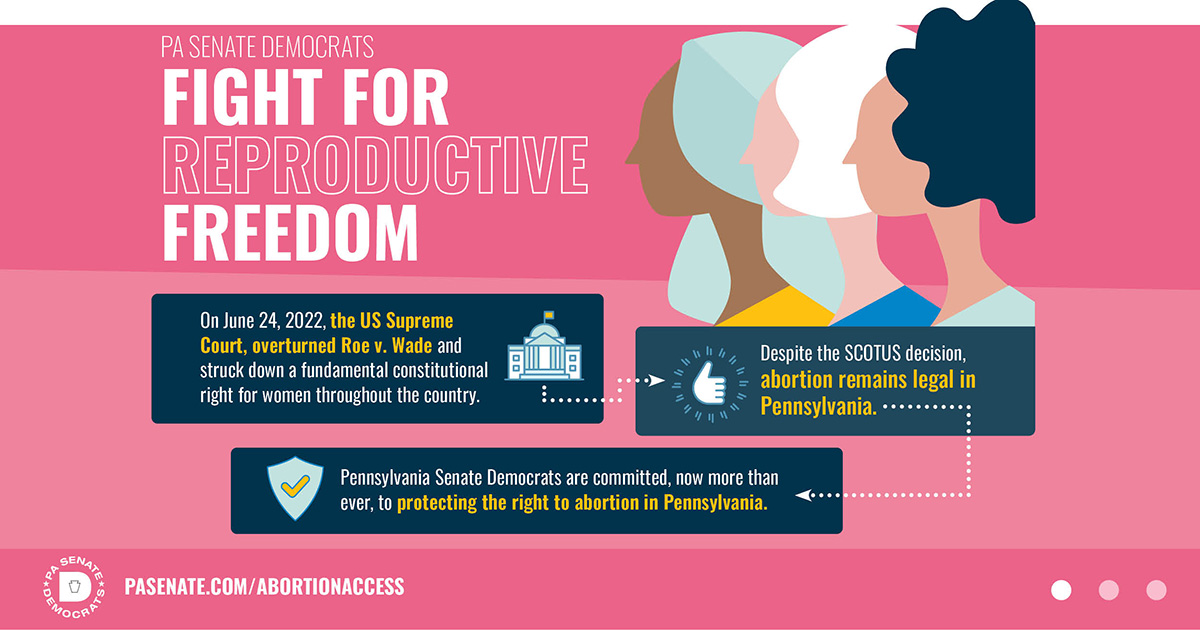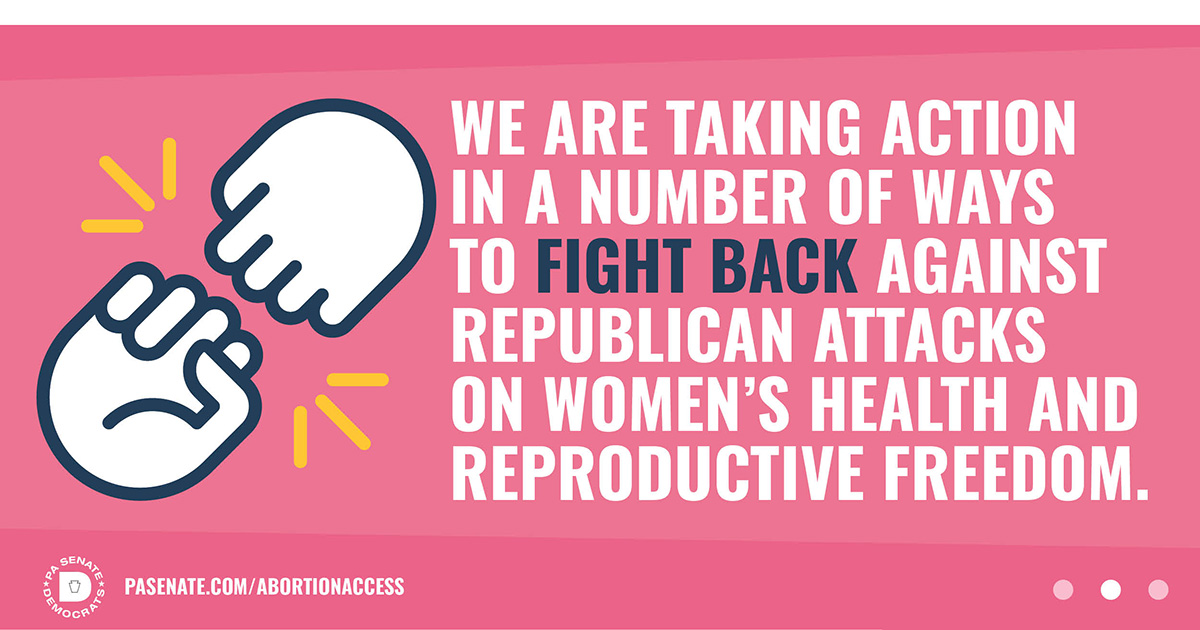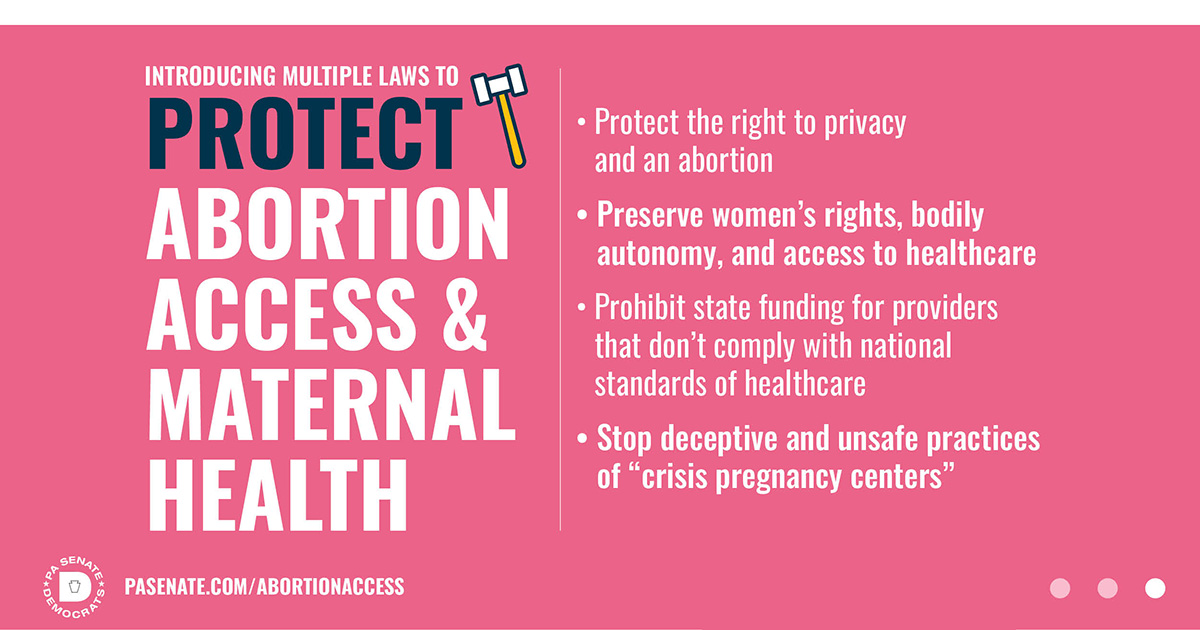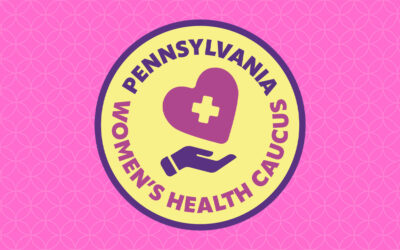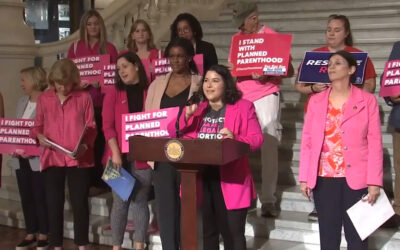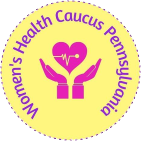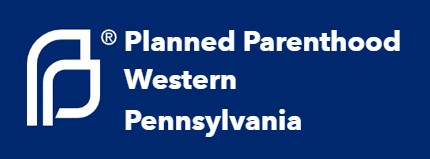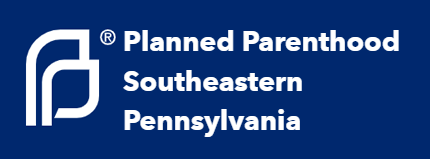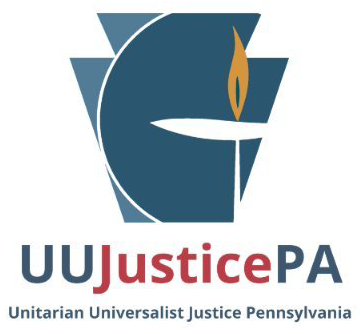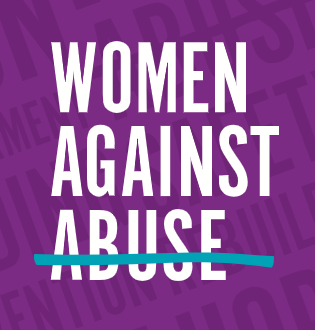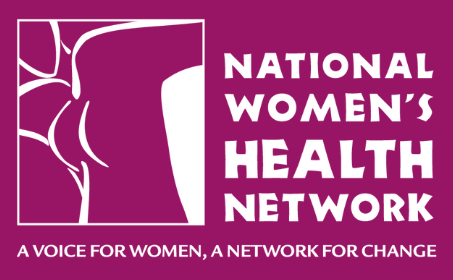
Healthcare is a human right, for everyone, regardless of gender orientation. No one should have restrictions on the care they’re able to receive or the decisions they’re able to make about their own body. Yet the fight for women to have bodily autonomy and equitable access to quality care continues.
Pennsylvania Senate Democrats are fighting for better healthcare options for women. We need more healthcare, not less. We need more access and coverage options, not less.
We believe lawmakers and leaders on both sides of the aisle can work together to make the healthcare system work even better for women and their specific health needs. Our caucus will continue to identify real health challenges and fight for solutions for women across the commonwealth. Proactive, unbiased, convenient, and supportive healthcare can easily be a reality for women if we make it a priority.
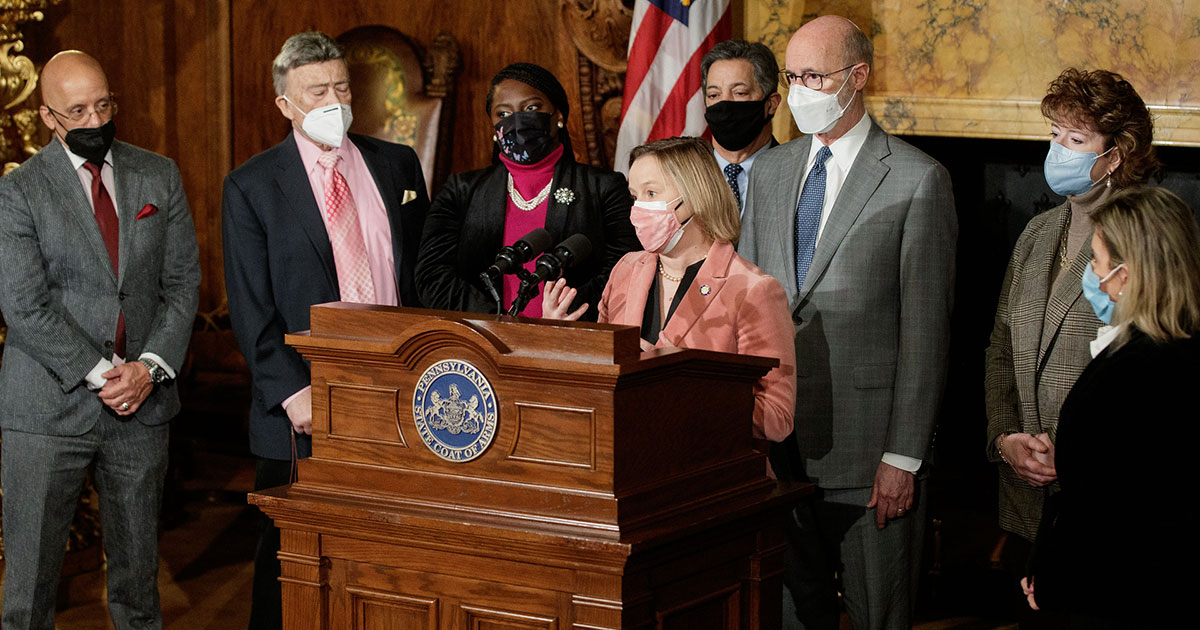
Senator Maria Collett celebrated the passage of House Bill 253 with Governor Wolf and other state leaders. HB253 appropriated $225 million in federal ARP funding to support health care workers in PA.
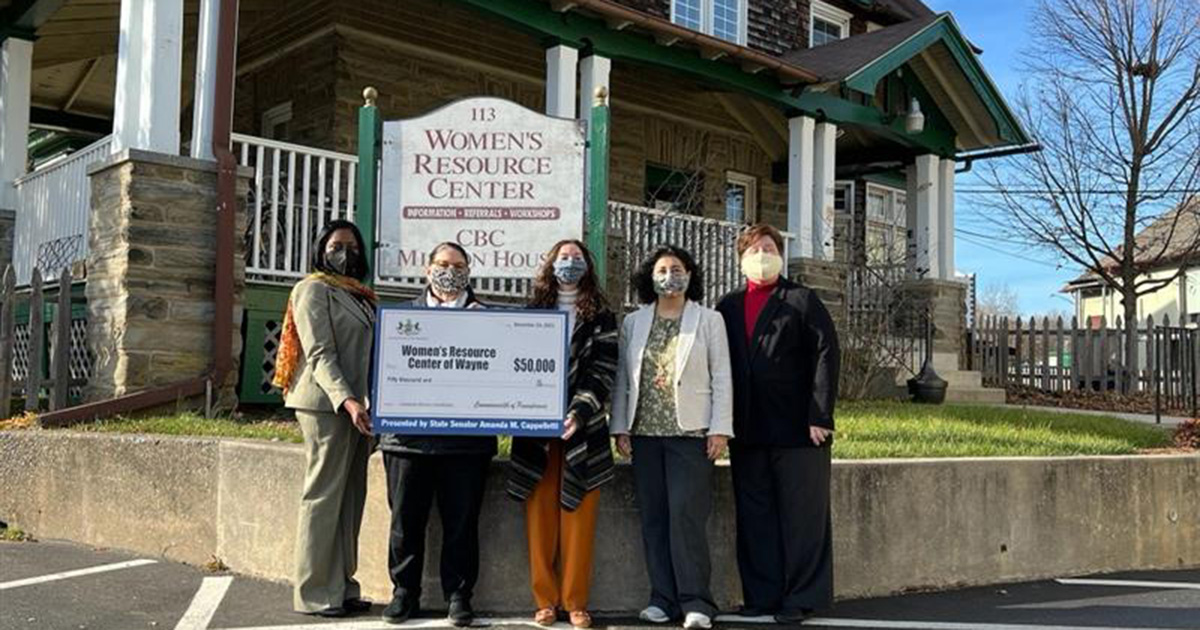
Senator Amanda Cappelletti presented the Women’s Resource Center with a $50,000 Department of Human Services grant.
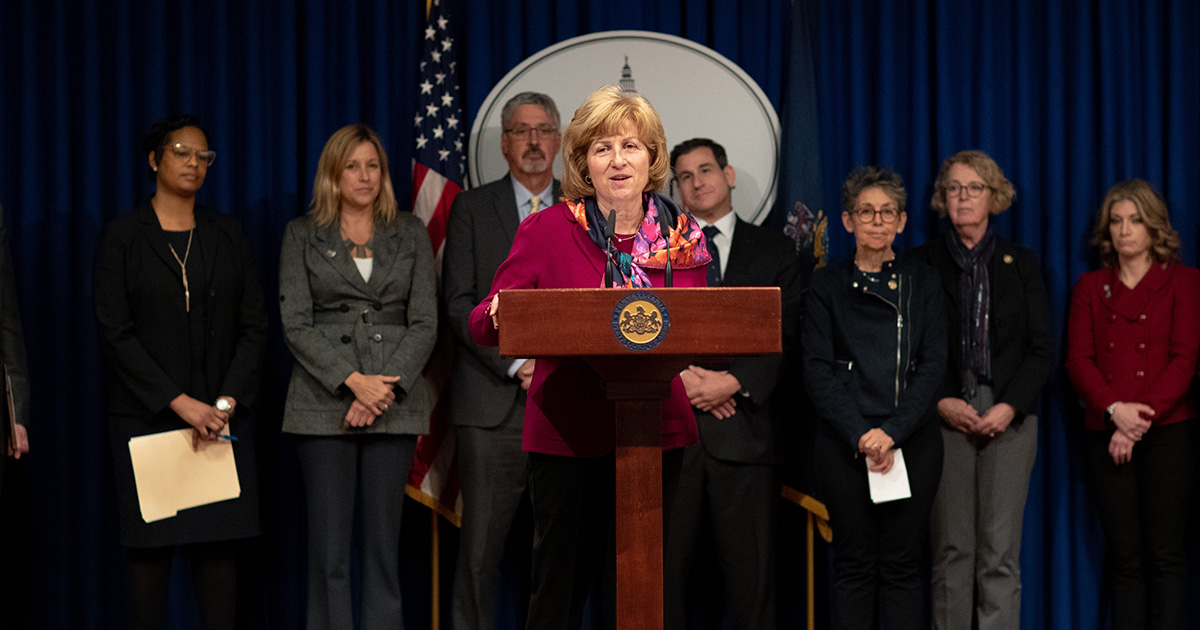
Senator Judy Schwank joined Democratic members of the Women’s Health Caucus and other lawmakers to speak out against House Bill 321, legislation that would limit health care choices for women and politicize difficult moments for vulnerable families.
Our Priorities, Our Work
Supporting health autonomy and access to care for women must continue to be a priority at the national, state, and local levels. The PA Senate Democrats will continue to fight for women’s rights to:
Autonomy in all healthcare decisions
Paid family leave to further support maternal care post-pregnancy for mothers and newborn babies
Access to reproductive and sexual health products and education
Equitable, high quality maternal care
Increased support and resources for victims of sexual violence, dating violence, domestic violence, and stalking
Comprehensive healthcare coverage for female specific health issues and procedures
Our Members at Work
Pennsylvania Women’s Health Caucus Statement on the U.S. Supreme Court Ruling on Abortion under EMTALA in Moyle v. United States
Harrisburg — June 27, 2024 — The co-chairs of the Pennsylvania Women’s Health Caucus Sen. Amanda M. Cappelletti (D-Montgomery), Sen. Judy Schwank (D-Berks), Rep. Gina H. Curry (D-Delaware) and Rep. Mary Jo Daley (D-Montgomery) issued the following statement in...
Senate Democratic Leaders, Jay Costa and Vincent Hughes, Issue Statement Affirming Caucus Commitment to Women’s Reproductive Freedom and Autonomy
Harrisburg − June 24, 2024 − Today, Senator Jay Costa, Senate Democratic Leader, and Senator Vincent Hughes, Senate Democratic Appropriations Chair, issued the following statements to recognize the second anniversary of the overturning of Roe v. Wade and Senate...
WHC Marks the Second Year Post-Dobbs Decision
Women’s Health Caucus and Reproductive Rights Advocates to Rally on the second-year mark of the Dobb’s Decision
Harrisburg, PA – June 24, 2024 – Members of the Pennsylvania Women’s Health Caucus (WHC) were joined by Planned Parenthood, Department of Human Services Secretary Val Arkoosh, and advocates in Harrisburg today, on the second-year mark of the Dobbs Decision that...
Sen. Collett Talks Paid Leave & Sexual Harassment Policy at US Dept. of Labor Panel in Washington
Washington, D.C. − April 8, 2024 − On Monday, April 1, Pennsylvania Senator Maria Collett (D-12 Montgomery) participated in panel discussion hosted by the United States Department of Labor’s Women’s Bureau and Chief Diversity and Equity Office, "Celebrating Women...
Senators Cappelletti and Schwank to Introduce Abortion Protections Package in Pennsylvania
Harrisburg, PA – July 18, 2023 – Today, Senator Amanda M. Cappelletti (D-Mongomery/Delaware) and Senator Judith Schwank (D-Berks) circulated a co-sponsorship memo detailing their intent to introduce a legislative package called the Abortion Protections Package....
Black Maternal Health Week News Conference
PA Women’s Health Caucus kicks off the 2023-2024 legislative session with a new mission and a reasserted commitment to reproductive rights on the first day of Women’s History Month
Harrisburg, PA- March 1, 2023 --- Today, on the first day of Women’s History Month, Chairs of the Pennsylvania Women’s Health Caucus, Senator Judith Schwank (D-11 Berks), Representative Mary Jo Daley (D-148 Montgomery), and Representative Gina Curry (D-164 Delaware)...
Policy Hearing Addresses Critical Need to Establish Statewide Rape Kit Tracking System
PHOENIXVILLE, September 23, 2022 – State Senator Katie Muth (D- Berks/Chester/Montgomery), chair of the Senate Democratic Policy Committee, today joined state Rep. Morgan Cephas (D-Philadelphia) and members of the Senate and House Democratic Policy Committees at...
Women’s Health Caucus Holds Press Event on Postpartum Medicaid Expansion, Protecting Access to Abortion
Harrisburg—September 21, 2022 — This morning, members of the Women’s Health Caucus, the Pennsylvania Department of Human Services, and an advocate from Planned Parenthood held a press event to talk about postpartum Medicaid expansion and the need to protect...
Senator Kearney, Local Organizations Highlight Important Information to Help Preserve Reproductive Rights in PA During Event
SPRINGFIELD, PA – August 31, 2022 – Senator Tim Kearney (D–Delaware/Chester), in partnership with the Women's Centers, The Foundation for Delaware County, Planned Parenthood Southeastern Pennsylvania, and the Domestic Abuse Project of Delaware County, Inc., recently...
Senator Jay Costa Supports Governor Wolf Led Lawsuit Against SB 106, Reaffirms Commitment to Abortion Access in PA
HARRISBURG, PA – July 28, 2022 − Today, Governor Tom Wolf announced a lawsuit against the Republican-led General Assembly for their unconstitutional attempt to ban abortion in Pennsylvania. Senator Jay Costa (D-Allegheny), leader of the...
Women’s Health Caucus Hosts Second Policy Hearing on Post-Roe Pennsylvania
Philadelphia — July 26, 2022 — Today, the Women’s Health Caucus conducted its second joint hearing with the House and Senate Democratic Policy Committees on Pennsylvania abortion access post-Roe. The hearing was held at the William Way Community Center and...
Joint Policy Hearing on A Post-Roe America
Policy Hearing Identifies Facts and Fiction of Post-Roe Pennsylvania
HARRISBURG, JULY 19– The House and Senate Policy Committees convened a hearing Tuesday morning to explore what the future of healthcare looks like in Pennsylvania after the Supreme Court of the United States overturned Roe v. Wade.
PA Senate Democrats Hold 2022 Policy Hearings on Abortion and Reproductive Health in Pennsylvania
2021 -2022 Legislation
Senate Bill 1259 – Setting Standards for Family Planning Services
This legislation would align the regulations of the Health Care Facilities Act to cover all providers of pregnancy related services. It would ensure that there are safeguards and securities for any organization offering pregnancy-related services by requiring all organizations to meet healthcare related regulations and patient safety provisions. This bill would also ensure that organizations receiving taxpayer dollars are required to disclose the use of those dollars in the advertisement, and ensure information provided during the provision of their services is medically accurate. With Pennsylvania’s maternal mortality rate on the rise, it is our responsibility to protect the health outcomes of pregnancies for our constituents.
Senate Bill 51 – Protecting the Essential Health Benefits for Insurance Policies sold in PA
Sponsored by Senator Hughes and the Senate Democratic Caucus
This legislation would codify the federal essential health benefits (EHB) into state law. Before the ACA imposed EHB, three in five people had an insurance policy that did not provide maternity coverage and one in three policies did not cover substance abuse treatment. Under the proposal, the ten essential health benefits (EHBs) currently covered by the ACA would be placed into state law. The benefits the legislation would include are: ambulatory patient services; emergency services; hospitalization; maternity and newborn care; mental health and substance use disorder services including behavioral health treatment; prescription drugs; rehabilitative and habilitative services and devices; laboratory services; preventive and wellness services and chronic disease management; and pediatric services, including oral and vision care.
Senate Bill 358 - Maternal Morbidity
Sponsored by Senator Schwank
This legislation would add “severe maternal morbidity” to the list of reportable events within the Pennsylvania Department of Health. Severe maternal morbidity is a category of health conditions that complicate pregnancy, including unexpected outcomes of labor delivery that result in significant short- or long-term consequences to a woman’s health, which sometimes results in death, sometimes an instance of maternal mortality. In 2014, maternal morbidity affected 50,000 women in the United States and has been steadily increasing since that time. This bill would categorize maternal deaths and severe maternal morbidity complications as reportable events. The Maternal Mortality Review Committee would submit a report including each reportable event to the department.
Senate Bill 509 – The Creation of the #MeToo in Pennsylvania General Assembly Act
Sponsored by Senator Collett
This legislation would ban the use of non-disclosure agreements which mask the names of Members of the General Assembly who are accused of harassment if the complaint is credible; Require that credibly accused members of the Legislature be held accountable to the taxpayers of Pennsylvania and require that they repay any settlements that were paid with taxpayer dollars; Require that paid administrative leave, remote work assignments, and reimbursement for licensed professional counseling be offered to employees during the entire adjudication of the proceedings; Establish procedures for keeping the investigatory, prosecutorial, and adjudicatory functions separate as required under Pennsylvania law; Establish a new section of procedures for promulgating temporary regulations to facilitate the prompt implementation of this new section; Combine the settlement provisions with provisions relating to the source of payment, the personal liability of elected officials, and the payment of awards.
Senate Bill 785 – “It’s on Us!” Teaching students to know and prevent dating violence and sexual assault.
Sponsored by Senator Schwank
This legislation would require schools to teach 7-12 grade students to identify and prevent dating violence, sexual assault, sexual harassment, and stalking to help equip young people with these important skills. Education to teens on dating violence and sexual violence may be extremely comprehensive in one school, but completely absent from another. Consistent policies and requirements on a school’s responsibility for ensuring education will ensure all schools are working to increase students’ awareness on dating and sexual violence.
Senate Bill 1217 – Protecting Pregnant Person Privacy
This legislation would put safety parameters around crisis pregnancy centers data collection and prohibit them from sharing personal information without written permission of the individual. While health care providers in the U.S. are subject to information disclosure provisions under HIPAA, crisis pregnancy centers (CPCs), which typically do not provide any health care services, are not required to provide any similar privacy protections. A recent investigation shows that umbrella organizations use CPCs to collect and store extensive personal client data to essentially create “digital dossiers” to surveil and attempt to influence every person who interacts with a CPC.
Senate Bill 339 – Insurance Coverage for Infertility Treatments
Sponsored by Senator Lisa Boscola
This legislation would amend The Insurance Company Law of 1921 by adding language that will provide for the coverage of infertility treatments and medication. The legislation would prohibit insurance companies from imposing any exclusions, limitations, or other restrictions on coverage of infertility drugs that are different from those imposed on any other prescription drugs.
Senate Bill 359 - Medicaid Expansion for Postpartum Women
Sponsored by Senator Schwank
would expand Medicaid for Postpartum Women. In Pennsylvania, pregnancy-related Medicaid eligibility ends 60 days postpartum. As such, many women are left without coverage and are at a greater risk of losing access to critical health services during a time of unmet maternal health needs. By extending Medicaid coverage, health issues that are of high risk to mothers can be addressed, and the number of preventable maternal deaths can be reduced. States that have already extended Medicaid coverage for postpartum women under the Affordable Care Act (ACA) have experienced a 50 percent greater reduction in infant mortality than states that have not. This legislation would require the Secretary of the Department of Human Services to apply for a waiver that would extend Medicaid coverage for pregnancy-related and postpartum medical assistance for up to an additional ten months. This will ensure mothers continue to have access to the necessary services and support for both themselves and their children.
Senate Bill 602 – The Pennsylvania Menstrual Equity Act
Sponsored by Senators Collett and Cappelletti
This legislation would require Pennsylvania’s public agencies that serve those who are young, low-income, homeless, or incarcerated to make Menstrual Products (MPs) available at no cost. Pennsylvania was one of the first states to remove the so-called “pink tax” of MPs in 1991, acknowledging that these items are a necessity to ensure the health, dignity – and equity – of millions of Pennsylvanians.
Senate Bill 967 – Establishing the Women, Infants, and Children State Advisory Board (WICSAB)
Sponsored by Senator Schwank
This legislation would create the Women, Infants, and Children State Advisory Board (WICSAB). The WICSAB will be comprised of regional Women, Infants and Children (WIC) agencies, agency partners, advocates, grocers, health care providers and participants. The board will be tasked to advise DOH on the operation of programs to increase enrollment and utilization, such as proper implementation of ARP funds for technology and data improvements, thus improving the access and availability to those served.
Senate Bill 909 – “It’s on Us!” Notification of Sexual Violence Victim Rights on College Campuses
Sponsored by Senator Santarsiero
This legislation would require institutions of higher education to provide students and employees with a written notification of rights, protective measures, and accommodations afforded to victims of domestic violence and sexual assault. Colleges and Universities have a unique responsibility to provide resources and support to victims of sexual assault and domestic violence that occur on their campuses. These institutions need to do a better job of educating students about the resources currently available and providing reasonable accommodations to victims. This bill is based on a proposal that was originally part of the White House’s “It’s on Us” Campaign to End Sexual Assault on Campus.
Senate Bill 989 – Ensuring Insurance Coverage for Infertility for all Pennsylvanians
Sponsored by Senator Cappelletti
This legislation would require certain employer-sponsored insurance plans to cover infertility services. According to RESOLVE: The National Infertility Association, 19 states have passed fertility insurance coverage laws. Each of Pennsylvania’s border states has an infertility insurance coverage mandate. Data shows that costs associated with expanded access are nominal and offset when more people get covered.
Senate Bill 353 – Access to Contraceptives for Women
Sponsored by Senators Schwank and Collett
This legislation would ensure a greater degree of access to contraceptives for women within the Commonwealth by expanding access to contraceptives. The bill would require insurers to provide coverage for contraceptives. In addition, this bill proposes to eliminate most co-payments for related coverage, lifts pre-authorizations on certain contraceptives, and authorizes insurers to provide coverage of 12 months of birth control at one time.
Senate Bill 360 - Medicaid Coverage for Doulas
Sponsored by Senator Schwank
This legislation would extend Medicaid coverage to Doulas. Doulas are not only shown to improve maternal and infant health, but many are specifically trained in cultural competence to address the intersectional experience that is pregnancy and motherhood. Research shows that access to doula services (before, during and after pregnancy) can bridge the unacceptable inequity, providing tailored care for women who so desperately need a support system. This legislation would extend Medicaid coverage to doula services. It would also create a Doula Advisory Board. The board would be responsible for determining the approved accreditation organizations for doulas, the competencies that should be required to ensure doulas are properly equipped to serve the mothers of Pennsylvania, and setting standards based on best practices for doula professionals.
Senate Bill 707 – Shackling of Incarcerated Pregnant Individuals
Sponsored by Senator Cappelletti
This legislation would expand restrictions on the use of restraints on pregnant, laboring, or postpartum prisoners or detainees. It will also strengthen accountability and reporting requirements to ensure that such protections are no longer ignored. This is an updated version of previously introduced legislation based on recommendations made by the Women’s Law Project to further ensure the protection of pregnant incarcerated individuals.
Senate Bill 730 – Yes Means Yes: Affirmative Consent and Coordination of Services
Sponsored by Senators Cappelletti, Collett, and Muth
This legislation would require the adoption of affirmative consent standards at all postsecondary institutions in Pennsylvania and increases access to comprehensive, coordinated, and confidential support and services for victims of sexual violence, dating violence, domestic violence, and stalking. The bill provides clear standards of what consent is, and is not, and would ensure students know where they can access resources in the event of an assault by requiring agreements with local rape crisis centers and domestic violence programs.
Senate Resolution 122 - Task Force on secondary and postsecondary campus sexual assault and relationship violence
Sponsored by Senator Hughes
This resolution would direct the Joint State Government Commission to conduct a study on the impact of sexual assault, dating violence, domestic violence and stalking on students in the Commonwealth in grades six through 12 and enrolled in postsecondary institutions and report findings and recommendations to the General Assembly. The study would be provided to the General Assembly and include recommendations regarding improving responses and establishing consistent responses to sexual harassment, sexual assault, dating violence, domestic violence and stalking and secondary and postsecondary institutions. At a minimum, the report should address:
- Comparing and analyzing responses to sexual harassment, sexual assault, dating violence, domestic violence and stalking in different educational settings.
- Identifying and analyzing prevention and response policies of different educational settings relating to sexual harassment, sexual assault, dating violence, domestic violence, and stalking.
- Analyzing and identifying the number and frequency, as well as the benefits or deficiencies of the use of postsecondary institution campus climate surveys, including how those surveys have been used to update policies or programs.

